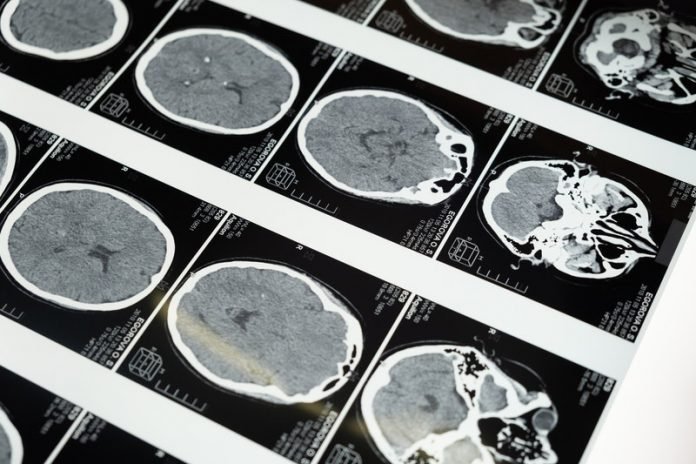
In a new study, researchers have discovered that SARS-CoV-2 can directly infect the central nervous system and have begun to unravel some of the virus’s effects on brain cells.
The finding may help doctors develop treatments for the various brain symptoms linked to COVID-19.
The research was conducted by a team at Yale School of Medicine.
Though COVID-19 is considered to primarily be a respiratory disease, SARS-CoV-2 can affect many other organs in the body, including, in some patients, the central nervous system.
The infection is linked to a variety of symptoms ranging from headaches and loss of taste and smell to impaired consciousness, delirium, strokes, and cerebral hemorrhage.
Many questions remain to be answered, including whether SARS-CoV-2 can infect neurons or other types of brain cells.
In the study, the team analyzed the ability of SARS-CoV-2 to invade human brain organoids, miniature 3-D organs grown in the lab from human stem cells.
They found that the virus was able to infect neurons in these organoids and use the neuronal cell machinery to replicate.
The virus appears to facilitate its replication by boosting the metabolism of infected cells, while neighboring, uninfected neurons die as their oxygen supply is reduced.
SARS-CoV-2 enters lung cells by binding to a protein called ACE2, but whether this protein is present on the surface of brain cells is unclear.
The Yale team determined that the ACE2 protein is, in fact, produced by neurons and that blocking this protein prevents the virus from human brain organoids.
SARS-CoV-2 was also able to infect the brains of mice genetically engineered to produce human ACE2, causing dramatic alterations in the brain’s blood vessels that could potentially disrupt the organ’s oxygen supply.
Central nervous system infection was much more lethal in mice than infections limited to the lungs, the researchers found.
Finally, the researchers analyzed the brains of three patients who succumbed to COVID-19.
SARS-CoV-2 was detected in the cortical neurons of one of these patients, and the infected brain regions were associated with ischemic infarcts in which decreased blood supply causes localized tissue damage and cell death.
The study shows that neurons can become a target of SARS-CoV-2 infection, with devastating consequences of localized ischemia in the brain and cell death.
The results suggest that neurologic symptoms associated with COVID-19 may be related to these consequences, and may help guide rational approaches to the treatment of COVID-19 patients with neuronal disorders.
One author of the study is Akiko Iwasaki, a professor at the Yale School of Medicine.
The study is published in the Journal of Experimental Medicine.
Copyright © 2021 Knowridge Science Report. All rights reserved.




